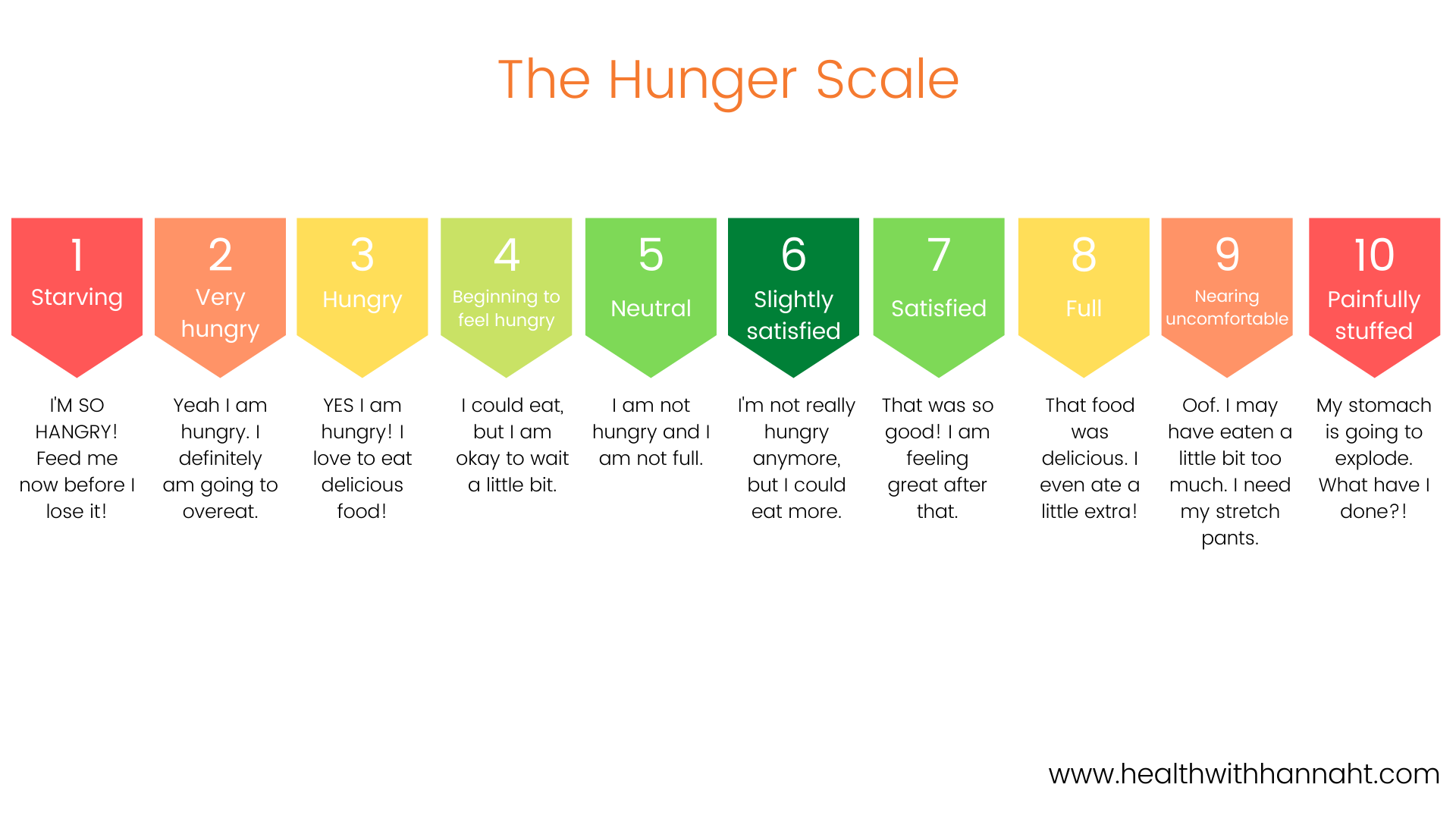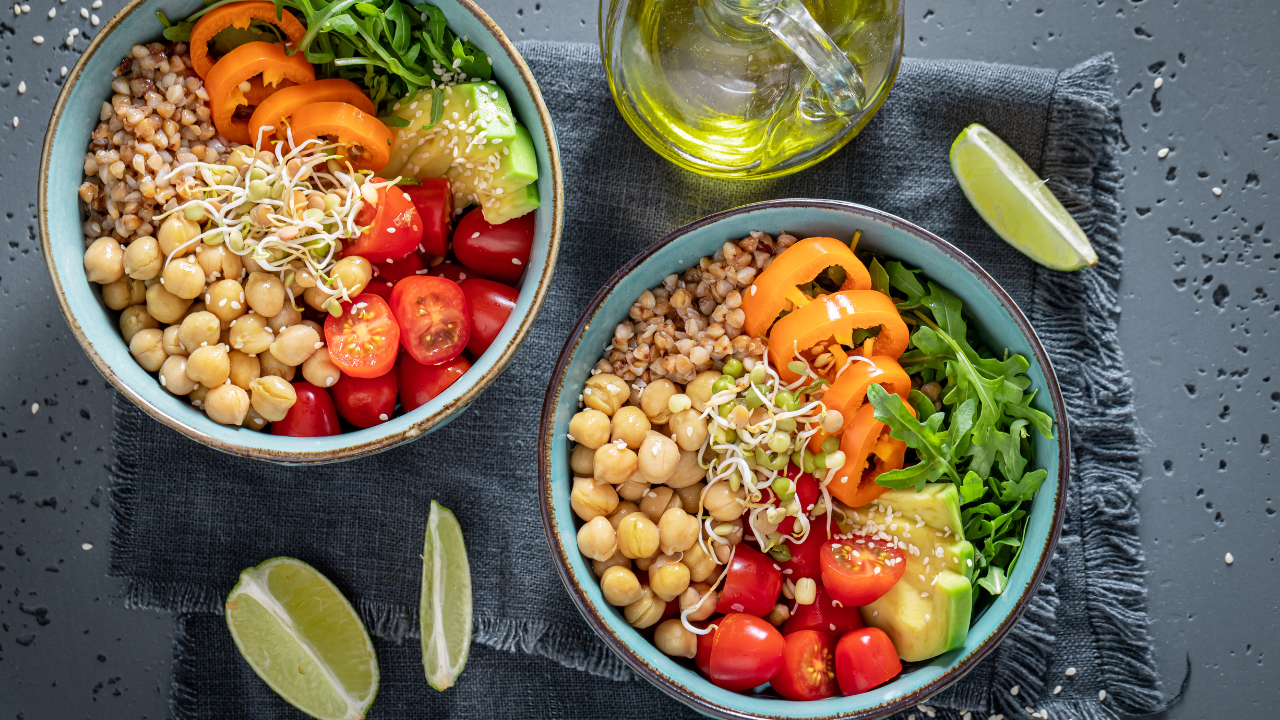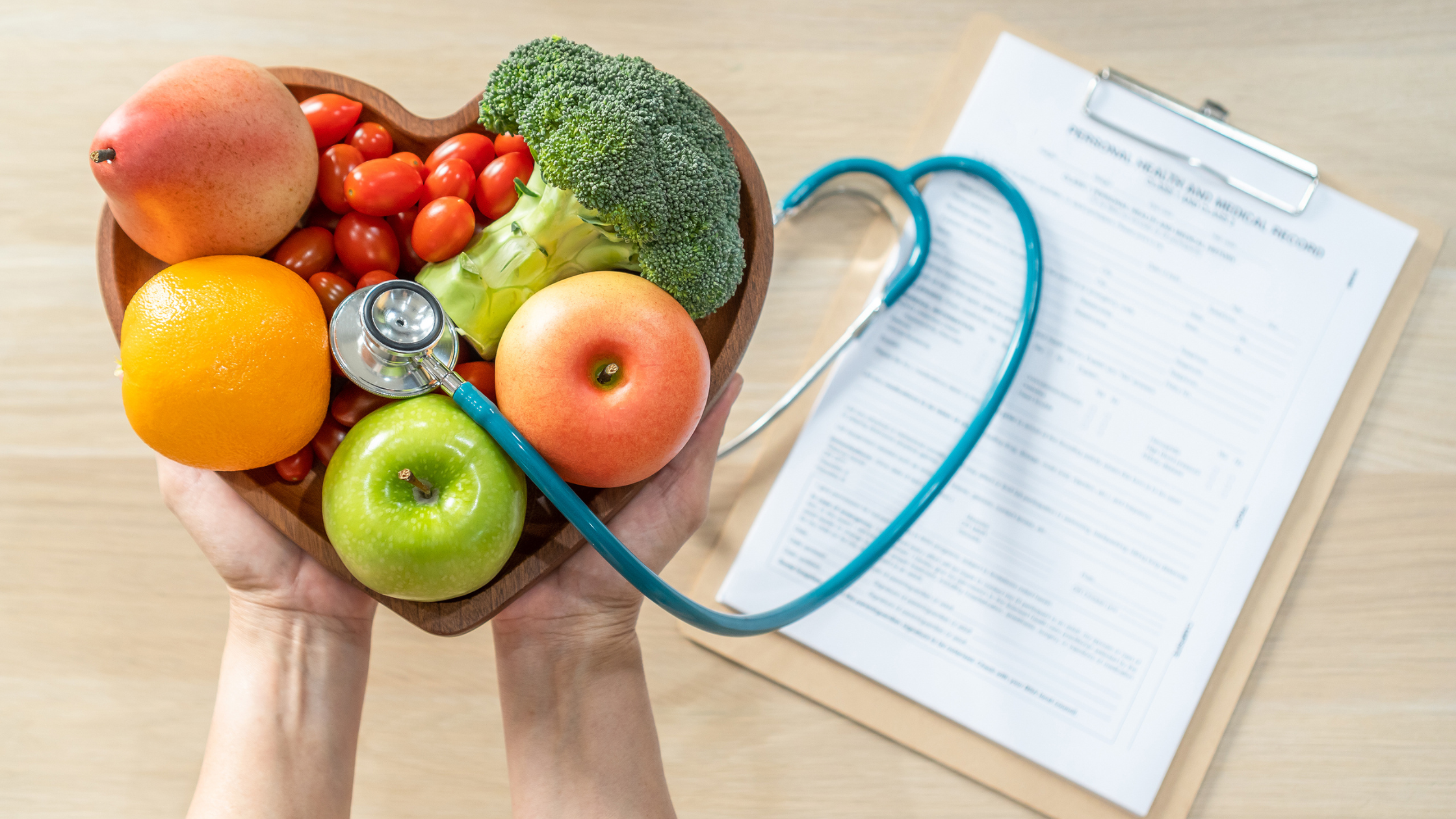How to Use the Hunger Scale
Do you struggle to know when you are hungry and when you feel full? Identifying hunger and fullness are a key part of intuitive eating and for some, using a tool known as the the hunger scale can be helpful on the journey of rediscovering their body’s cues.
If you’re new here, hello and welcome! My name is Hannah and I am a non-diet dietitian here to help you improve your relationship with your body and finally find food freedom.
In this blog we will cover:
What is the hunger scale?
How to use the hunger scale
What to do if you get too hungry
What to do if you eat past fullness
What is the hunger scale?
The hunger scale is a tool that I use quite a bit to teach mindful eating. Just like it sounds, it is a scale from 1-10 that can be used to describe how hungry or full you feel.
We do not want to be on either side of the spectrum. We do not want to be a 1 where we feel so hungry and need to eat ASAP. We also don’t want to be on the other side at a 10, which is a feeling of being painfully full and uncomfortable.
Ideally, we want to stay between a 3 and a 7 on the hunger scale. In terms of hunger, a 3 feels like “yeah, I should eat and I’m so excited to taste some delicious food”. In terms of satiety, a 7 is a point of satisfaction. Perhaps have room for more, but continuing to eat would make you a little uncomfortable.
We want to try to avoid becoming overly hungry or overly full. When we get to a 1 or 2 in terms of hunger (whether intentional or not), all rationale goes out the window and we risk eat past fullness and ending up at a 8 or 9.
When we get overly full, we may restrict because we ate “too much”, leaving us feeling too hungry again. When this happens, we end up back and forth on the scale rather than staying in the comfortable middle section.
How to use the hunger scale
The hunger scale is a tool for you to utilize as needed. Eventually, you will be able to recognize your hunger and satiety without having to think “Am I at a 3? Should I eat something?” or “I’ve been eating for a while, am I at a 7 yet?” This will become more subconscious as you build trust with your body.
If you have been dieting for a long time and not responding appropriately to your hunger and satisfaction cues, feel free to reference the hunger scale above while you are eating and think about how you are feeling. And remember, it is never going to be perfect. You may find yourself getting too hungry or too full on occasion. You are human, after all.
What to do if you get too hungry
If you find yourself a 1 or a 2 on the hunger scale, that’s okay! Try your best to be extra mindful and present while eating.
Eat slowly. Put your fork/spoon down in between bites.
Eat protein, healthy fat, and fiber to help you stay full.
Sit down and eat at the table, if able. Eating elsewhere makes it difficult to be mindful.
If it helps, try to avoid distractions such as scrolling on your phone, watching a video, or doing work while you eat. Take the time to enjoy and savor the meal.
Learn more about honoring your hunger here.
What to do if you eat past fullness
It is normal to overeat, especially if you have been dieting and undereating for a long time. Here’s what to do if you end up in 8-10 territory on the hunger scale.
Forgive yourself. There is nothing wrong with eating past fullness.
View it as a learning opportunity. What caused you to eat past fullness? Were you busy and eating on the road or at your desk while working? Did you allow yourself to get too hungry? Was your last meal/snack not satisfying? Have you been dieting and restricting and you finally “caved”? There is nothing wrong with any of these scenarios and you do not need to feel guilty. Just take a mental note.
Don’t panic. Your body knows what to do with the extra food.
Move your body if it feels good. Do some stretching, go for a light walk. But remember that this movement is not punishment! You never have to punish yourself for eating or earn your food with exercise.
Get back to normal eating habits. Do not restrict. If you overeating and then restrict to “make up” for it, you are going to get overly hungry and then likely overeat again.
Bottom line - what is the hunger scale?
The hunger scale is a helpful tool to help you eat more mindfully if you have been dieting and restricting for a long time. Eventually, you will be able to do this without referencing the scale, but it can be used in the short term to help you.
Looking for more support? We’d love to be your diet-ditching guide inside The Nutrition Reboot Membership.

































